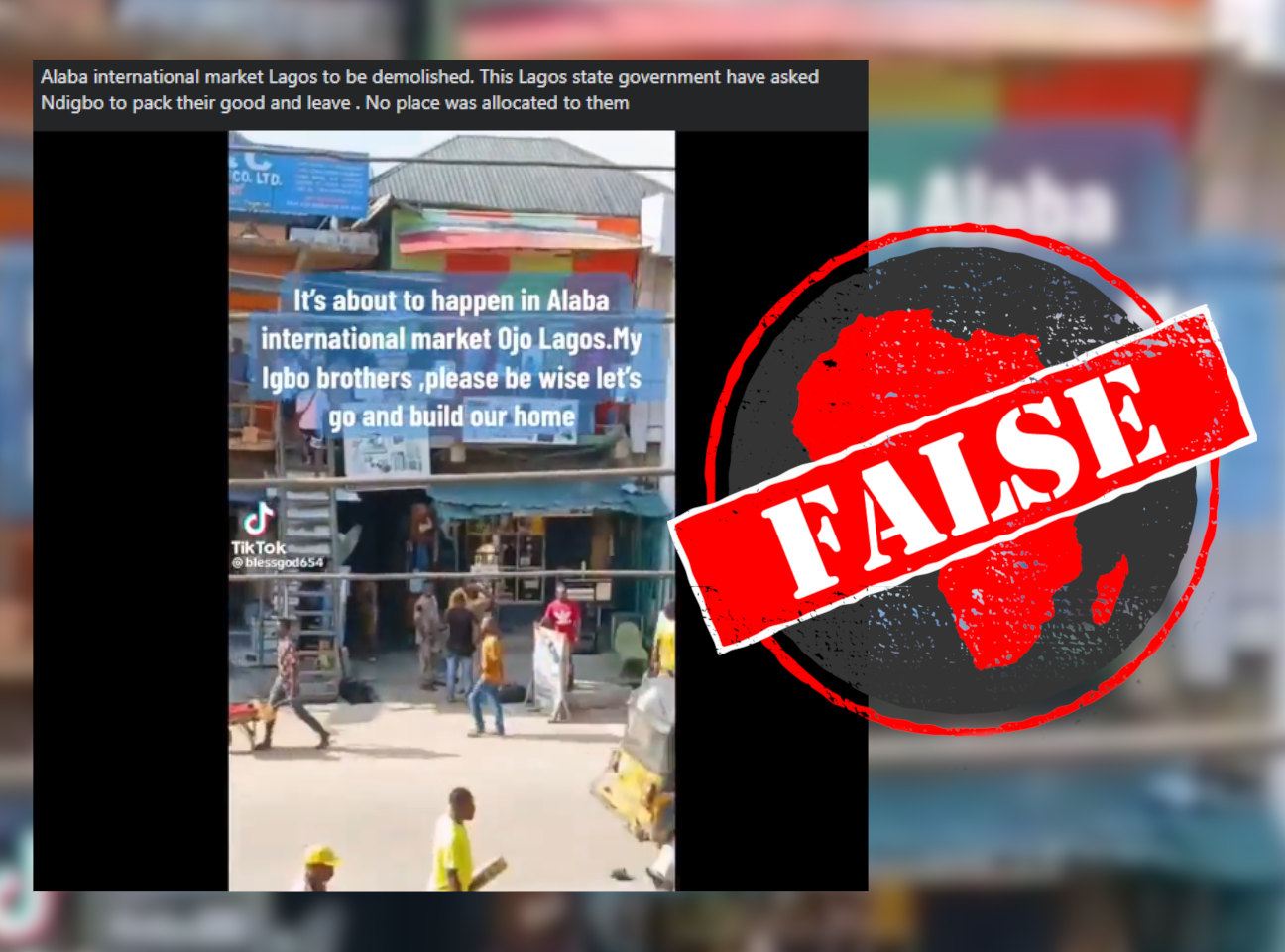IN SHORT: Claims are circulating online that traders from the Igbo community in Lagos are being targeted. But these are false and could stoke tensions between different communities in the state.
A message posted on Facebook in Nigeria claims that the Lagos state government plans to demolish Alaba, a popular electronics market.
The post reads: “Alaba international market Lagos to be demolished. This Lagos state government have asked Ndigbo to pack their good and leave . No place was allocated to them.”
Alaba international market, popular for the sale of electronics and home appliances, is located in the Ojo area of Lagos.
“Ndigbo” refers to people from the Igbo community. In the Facebook post, it refers to Igbo traders in the market.
We found the same message on Facebook here, here, here, here, here, here and here.
Did the Lagos state government announce plans to demolish Alaba market, risking stoking tensions that have been simmering since the general elections? We checked.

'Distressed' buildings demolished
Gbolahan Oki, the general manager of the Lagos State Building Control Agency, said 17 distressed buildings were marked for demolition at the market on 16 June.
He said the buildings had been marked for demolition after several vacation notices and warnings were issued to their occupants in 2016, 2020 and 2022.
According to the agency, the demolition was to avoid the danger the buildings posed to other structures and to the lives of traders.
On 17 June, the marked buildings were demolished.
Local media reported that Lagos state governor, Babajide Sanwo-Olu, met with those affected, including Igbo leaders, to clear up misunderstandings about the demolition.
At the meeting, a joint working committee was set up to resolve issues surrounding the demolitions.
The government's demolition of 17 dilapidated buildings in Alaba market was not a demolition of the entire market.
Republish our content for free
For publishers: what to do if your post is rated false
A fact-checker has rated your Facebook or Instagram post as “false”, “altered”, “partly false” or “missing context”. This could have serious consequences. What do you do?
Click on our guide for the steps you should follow.
Publishers guideAfrica Check teams up with Facebook
Africa Check is a partner in Meta's third-party fact-checking programme to help stop the spread of false information on social media.
The content we rate as “false” will be downgraded on Facebook and Instagram. This means fewer people will see it.
You can also help identify false information on Facebook. This guide explains how.


Add new comment